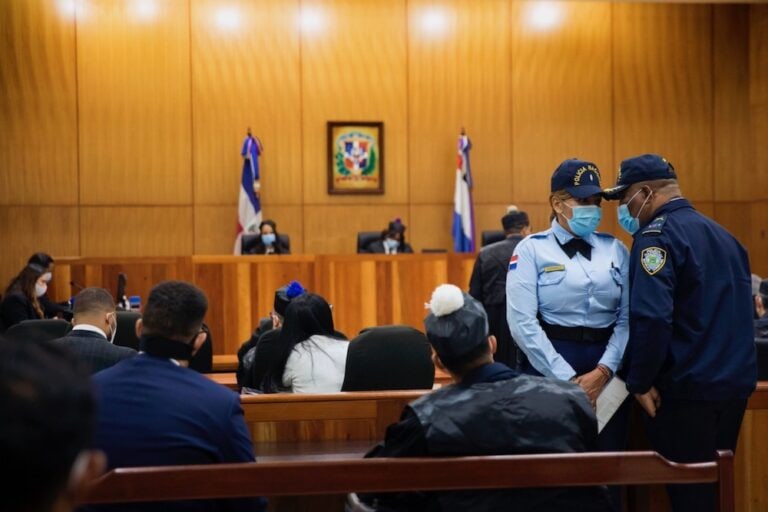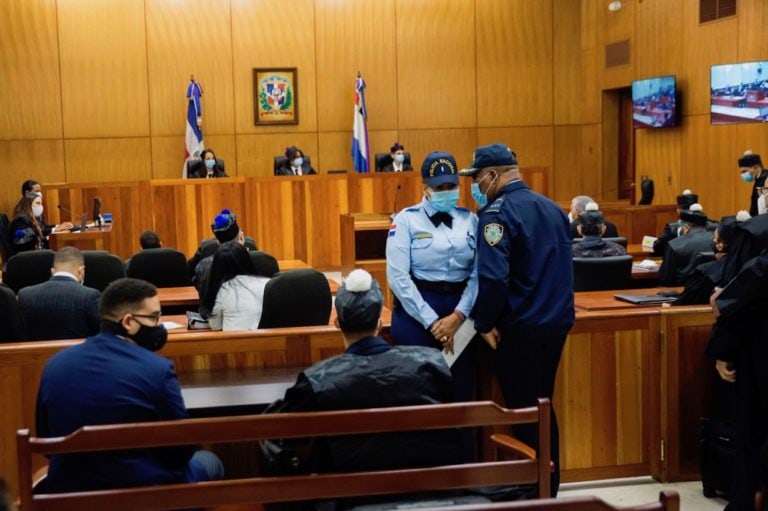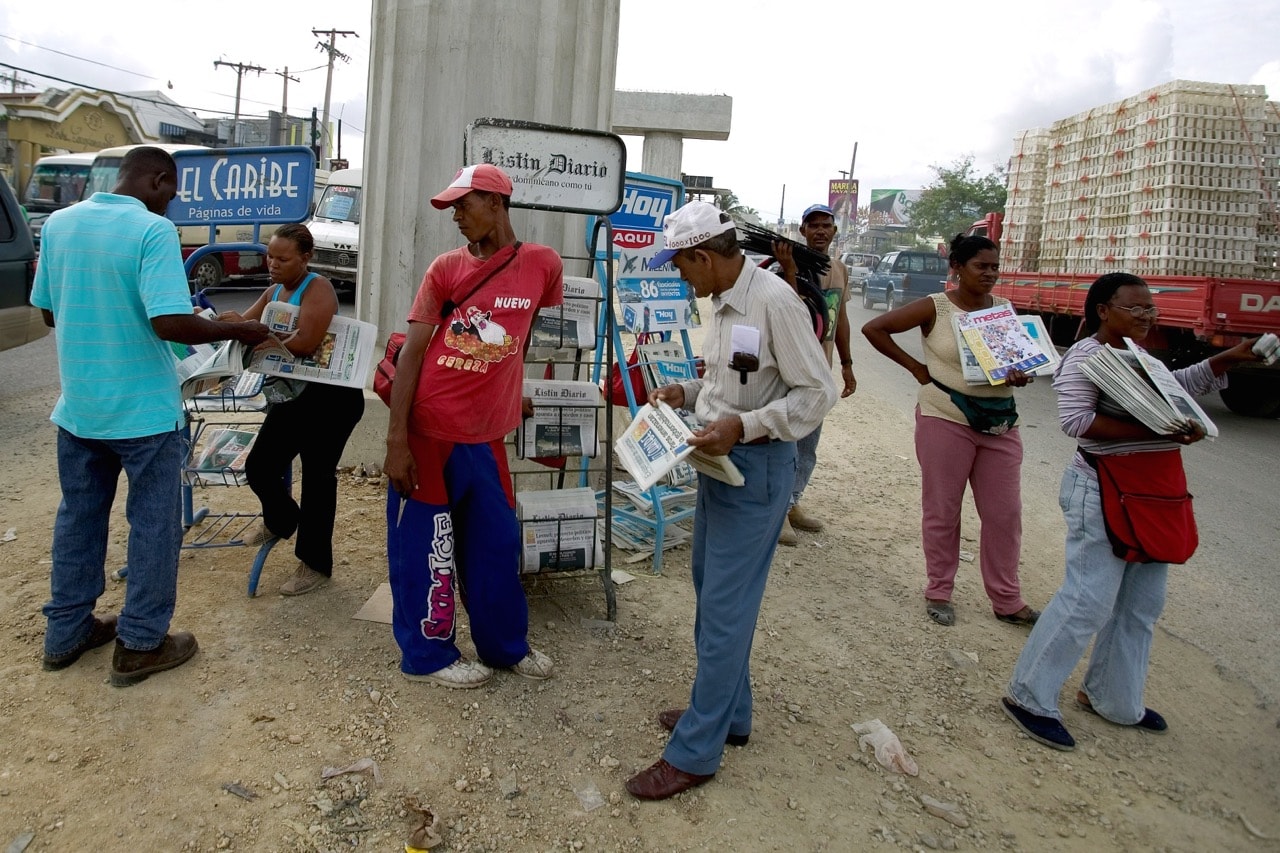The first half of 2015 has been arduous for journalists in the Dominican Republic, with physical attacks, threats, prosecutions and a murder.
This statement was originally published on rsf.org on 25 June 2015.
The first half of 2015 has been arduous for journalists in the Dominican Republic, with physical attacks, threats, prosecutions and a murder. Freedom of information is also weakened by continuing impunity for crimes of violence against media personnel and the concentration of media ownership in few hands.
Journalists who cover sensitive stories such as corruption or drug trafficking are exposed to the possibility of threats or violent reprisals by government officials or organized crime.
Progress was initially slow in the investigation into the murder of Blas Olivo, the press director of the Dominican Agribusiness Association (JAD), whose body was found 80 km north of Santo Domingo on 13 April. When his family and friends staged a demonstration on 18 May to press the police to solve his murder, the national police chief said the leading suspects would soon be arrested.
At a news conference on 3 June, the police said he was murdered by members of the “Latin King” gang on the orders of José Miguel Rodríguez Almonte, an already imprisoned gang leader accused of more than 100 murders. However, Rodríguez Almonte was mysteriously gunned down in his cell by police on 12 June, depriving the investigation of a key witness for confirming this theory and for identifying the masterminds.
Since the start of the year, Reporters Without Borders has registered two cases of media personnel being physically attacked by police officers or soldiers to prevent them from continuing to do some potentially embarrassing reporting.
In the latest case, members of the National Directorate for Drug Control (DNCD) attacked Fausto García as he was trying to film a DNCD operation in Navaratte, in the northern province of Santiago, on 27 March.
Telefuturo Canal 23 cameraman Eduard González was assaulted by soldiers while filming incidents outside an electoral commission office in the Santo Domingo district of Trianitos on 14 January.
“We are very concerned about abusive treatment of the media and we condemn all forms of violence designed to censor media coverage or punish journalists who are just trying to do their work,” said Claire San Filippo, the head of the Reporters Without Borders Americas desk.
“The Dominican authorities should concentrate on combating impunity for violence against journalists and set an example by pressing ahead with the decriminalization of media offences begun in 2012.”
Smear and hate campaigns
Four journalists – Juan Bolívar Díaz, Huchi Lora, Amelia Deschamps and Roberto Cavada – announced on 2 February that they were the targets of a hate campaign for showing support for Haitians resident in the Dominican Republic.
This is a sensitive issue since the adoption of Law 169/14 in May 2014, a law that is said to violate the American Convention on Human Rights because it denies Dominican citizenship to many persons of Haitian descent born in the Dominican Republic.
The four journalists filed a complaint about the public humiliation and threats they had received in January and February, which they said had been orchestrated by a group called the Independent Patriotic Movement.
A few days later, TV reporter Salvador Holguín said he had been the target of death threats and a social network smear campaign since an interview in which a former drug trafficker and army captain, Quirino Paulino Castillo, claimed to have lent 200 million pesos to former President Leonel Fernández of the ruling PLD party.
The Dominican Association of Journalists (CDP) reported in April that Holguín had been told by TeleRadioAmerica Canal 45 not to broadcast the interview during his programme and that, according to Holguín, the orders came from persons close to Fernández.
This is not the first time that Fernández associates have censored a TV station in this manner. In 2010, officials ordered the closure of privately-owned Canal 53-Cibao TV Club after one of its presenters made critical comments about Fernández.
Threats and acts of violence against journalists are all the more worrying because they are rarely solved.
Reporters Without Borders has nonetheless noted some significant court rulings in favour of media personnel. On 18 April, the supreme court threw out a defamation case against journalists Hector Tineo, Guillermo Tejeda and Hector Herrera Cabral.
And on 9 April, a court threw out a government official’s claim that his constitutional rights were violated by a journalist who criticized the way the Development and Cooperative Credit Institute (IDECOOP) was being run. The case was rejected on the grounds that the official’s goal was to obtain the right of reply.
Precarious employment
At a news conference on 7 April, celebrated as Day of the Journalist, the Dominican Association of Journalists painted a grim picture of journalism in the Dominican Republic, blaming the concentration of media ownership for the lack of job security and the high level of self-censorship.
According to the association, journalists have to choose between covering frivolous subjects that do not threaten the interests of advertisers and doing serious investigative reporting with the accompanying risk of losing their jobs.
Legislative progress is also needed because journalists continue to be exposed to the possibility of prison sentences or heavy fines in connection with their work. Progress has been made in recent years on the decriminalization of media offences but it has yet to be completed.
The protection of journalists’ source has been guaranteed since a constitutional amendment in 2009. And a major step was taken in 2013, when the supreme court ruled that article 46 of Law 6132 on the Expression and Dissemination of Thought was unconstitutional. The article listed professions whose members could be convicted of press offences.
The Dominican Republic is ranked 63rd out of 180 countries in the Press Freedom Index that Reporters Without Borders released in February.


